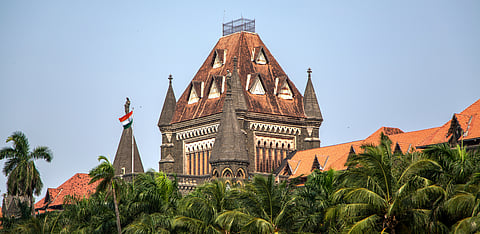

Last year's order, issued by Justice Gautam S. Patel, had led to apprehensions from activists about its applicability in other cases as well.
——
THE Bombay High Court on Thursday clarified that its order passed in September last year to protect the identities of the parties in a case under the Sexual Harassment of Women at Workplace (Prevention, Prohibition and Redressal) Act, 2013 (popularly known as the Prevention of Sexual Harassment [POSH] Act), was meant for the plaintiffs and defendants before it in that suit as they had consented to such an order, and that guidelines laid down in that order were not meant to be general in nature so as to bind those other than the parties before it.
Justice G.S. Patel, sitting singly, was responding to senior advocate Indira Jaising, who was appearing for an organization named 'Forum Against Oppression of Women' which filed an impleadment application seeking clarification of the said order. The Forum, in its application, contended that the guidelines not only militate against the letter and spirit of the POSH Act but are also against the very concept of open courts, which is an essential aspect of judicial determinations the world over.
On September 24 last year, Justice Patel passed an order prohibiting the disclosure of the identities of the victim, accused and witnesses, and mandating that all such court hearings be held in-camera or in Judges' Chambers, with only the court stenographer, plaintiff, defendant and their lawyers being present. Besides, he had directed that parties to POSH trials not disclose any information relating to such trials (including the final order/judgment) to the media nor publicise the same via social media, without securing permission from the Court.
Jaising told the High Court that its order was being relied upon by other litigants. Justice Patel said, "They can't do it". He added that by a subsequent order on October 11, 2021, the Court had clarified that its previous order dated September 24, 2021 was a consent order which governs proceedings between the parties before it alone.
Clarifying the "inadvertent lapses" in his September 24 order, Justice Patel made it clear that the directions were confined to that case only. "The directions could not possibly have had any larger or wider applicability for the simple reason that any such Rules of general applicability would have to be approved by the Full Court. A delegation of the authority of the Full Court would have to be in a manner known to law. A Single Judge hearing a particular matter within his rostered assignment has no authority or jurisdiction to issue any rules binding the entire Court. It is only the Full Court or the Hon'ble the Chief Justice which or who can do that. Very possibly, such Rules might even have been required to be notified in the official gazette. None of this was in contemplation at any time on 24th September 2021", he said in a fresh order dictated today.
Justice Patel further said that some of these inadvertent lapses were addressed in a court order passed on October 11, 2021. Jaising agreed with the Court's clarificatory order passed today and chose not to press for the impleadment. Noting her submission, Justice Patel disposed of the application accordingly.
During the hearing, Jaising also told the Court that the plaintiff also filed an appeal at the Supreme Court in January against the order of the high court passed on September 24 last year. Responding to this, Justice Patel said the plaintiff herself had given suggestions of holding an in-camera hearing, redacting her name, and directing news publications not to mention her name.
To this, Jaising noted: "The order was being relied upon in the Tarun Tejpal case; hence the clarification is necessary. Even the Industrial Courts in Mumbai are relying on the said order during the pendency of the appeals before them." However, Justice Patel said that they couldn't do it.
Click here to read the order.